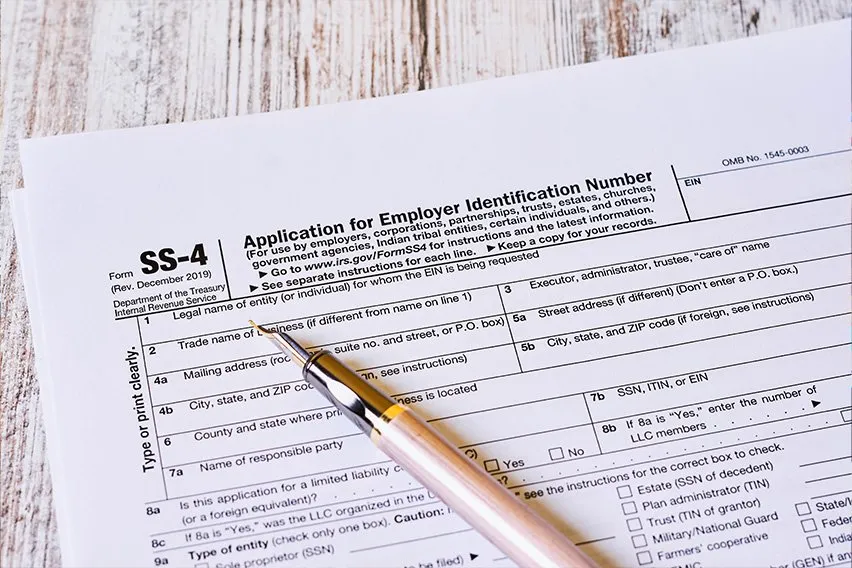When Should You Make Your First Hire?

Whether you’re a solo freelancer or running a small business, there will come a time when you’ll need more help—and that means hiring your first employee.
But how do you decide on the right time to hire? And what should you think about before you make a job offer and start the hiring process?
Read on to find out when the ideal time to hire is for your business! We’ll also cover what you need to prepare as an employer to give new hires a smooth transition into your business.
Five Reasons to Hire Your First Employee
Reluctant to hire a new person? Hiring your first employee can be daunting, especially if you’re already comfortable with your present workflow. Nevertheless, here are some very compelling reasons to consider taking that vital first step and start interviewing some candidates.
1. You Can’t Handle All of Your Daily Tasks
If you’re so busy that you can’t stay on top of your daily tasks, then it may be time for you to step back and consider hiring someone. Late deliverables tell your customers that you are unprofessional and lack time management. No matter how skilled you are or how much experience you have in business, there will be times when you need extra people to help you finish more work faster. Hiring another person will help you stick to your schedule, so don’t be afraid to look for help.

2. You’re Losing Track of Details
Maybe it’s a miscount of deliverables, or a one-time failure to send out an invoice on time. Either way, the quality of your work may be suffering because there’s no one else to double-check your output. If this keeps happening, people will complain and you might start losing clients. Don’t let the quality of your work decline—hire another person so you can focus on a specific job and get much-needed support.
3. You’re Turning Down Work Because You Lack Staff
As great as it is to be in demand, there will be times when your clients want more than you can reasonably handle and deliver within a period of time. If you’re interested in expanding your business or at least increasing the number of orders you take on, you have to start assessing the need to hire your first employee. You only have one body and a limited amount of time to accomplish everything in a day, so adding someone is a good first step to getting more done.
4. Your Business Needs New or Different Skills to Move Forward
Even if you have enough employees, you may be lacking someone who has the know-how to help you serve your clients better. The add-ons you want may require you to hire someone with experience in the right field, such as customer support, advertising or data processing.
5. You Desperately Need a Break
In 2019, the World Health Organization listed burnout as a legitimate health concern. And for a lot of freelancers and entrepreneurs, burnout is almost inevitable. When you’re working as a one-man operation, taking a break can feel like a huge risk. Slowing down, or worse, stopping operations for a few days, could lead to losing clients and customers who are used to getting your services right away.
But we’re only human, and rest is as integral to our lives as food and water. Getting one more person onboard will give you a sense of security. You’ll know that your company will still be up and running, even when you take a few days off to recharge.
Big Considerations When You Hire Your First Employee
Your first employee is going to have an impact on your company’s physical space, overall budget and task allocation. These are practical matters that you need to keep in mind and handle before you even make an ad looking for new employees.
Do You Have a Job Description Yet?
Before you start looking for an extra pair of hands, you need to figure out what that person is going to be helping you with. Do you need someone to manage your finances? An assistant to take care of your schedule? A sales representative to acquire more clients? Or an HR manager to handle employee records, training, policy development and recruitment?
Taking the time to figure this out forces you to assess every aspect of your company and shows you how much money, resources and time you’ll need to set aside for your new hire. Having a solid job description also helps weed out potential candidates. It gives you a clear picture of the skills you’re looking for and it sets the right expectations for job seekers.
How Much Is a New Hire Going to Cost You?
When you hire another person to join you, it’s not just a matter of allocating money from your budget to pay their salary. An additional employee means higher bills for utilities, or money for extra equipment and software if you work remotely. Think about what tools they’ll need to accomplish the day’s business—this will give you a better picture of the true amount you’ll be spending to hire them, besides just their pay.
Employee Resources
When you hire your first employee, you’re going to need to set up the following: a payroll system, employee information database and a handbook. These are just the basics so you know who to contact in case of an emergency, or to ensure that your new hire understands your business policies. Review preexisting employee rules online and see which ones you will need. Make sure you have these things ready before your employee starts their first day on the job.
Taxes and Benefits
The first form any potential new hire has to fill out is a job application. Once they’ve done that successfully—and gone through the interviewing process, which has resulted in a job offer—there are still several forms they need to complete for the employer. These include a contract of employment, a tax withholding form (a.k.a. the W-4), and forms for social security, benefits and bank account information. While you can get taxes and income-related forms from the IRS, the rest is largely up to you.
Check your state laws as well. Some states have state income tax, which needs to be filled out in a separate form. Florida and Texas, for example, don’t have state income tax, but California does. There’s no need to provide a form for local income tax, because that’s already factored into wages.
Make sure to get all the information from your employees by preparing forms ahead of time. If you’re worried that you’ll miss important questions or skip fields, you can download template maker software or apps to create ready forms with the necessary details.
The New Hire Checklist
Now that you know what forms and policies you need to prepare, here’s a list of every step you need to take to help a fresh hire on the first day. Guiding your new employees will set the tone for their future work experience with you, and it will help you determine if they’re a good fit for your business. Here are some things to consider when it’s time to hire, in order to help new employees find their footing.
The First Day List
1. Do a Job Orientation and Office Tour (If You Have One)
Familiarize employees with their general duties, and give them a quick tour of the work environment. You should also introduce them to any other team members, so they can get to know each other.
Don’t forget to let them know what their business email address is, if you provide one for employees. There should also be a telephone directory if you frequently contact agencies or certain clients, so they know how to reach someone even if you’re not there to point them in the right direction.
2. Inform Them of Work Hours
Time management is crucial to any workplace’s efficiency. Let new hires know what time they’re expected to show up, and when they can leave. It’s important to inform them of your business’ process for overtime or weekend work, especially if you keep irregular hours or a more flexible work schedule. Be prepared to set protocols for working from home too! There might come a time when your sick employee is well enough to work, but not well enough to come into the office.
3. Give Them a Quick Overview of Rules on Conduct and Safety Policies
While they may have already signed a form accepting the employee handbook and affirming that they understand all the policies, it’s good to be cautious and orient them anyway. There may be a crucial rule that they missed, or they may have questions about what to do during certain events.
4. Help Them Set up Their Office Space and Equipment
Whether it’s a laptop, a printer or a workbench, you should take the first step and lend new hires a hand in getting comfortable in their new work space. Check if all the necessary equipment is present at their station, and let them know where you keep office supplies in case they need to replenish later on.
5. Inform Them of the Basic Compensation and Any Other Benefits You Will Be Providing
Tell them how much they can expect to take home before and after taxes. If you have other benefits, like providing free meals or healthcare, or allowing them to have employee discounts on your products, let them know right away. Even if the salary you offer is low, if you provide a lot of benefits and have a healthy work-life balance in your business, your team will have more job satisfaction.

The First Week Checklist
After a new employee’s first day, observing them during the first week should clue you in on how you can help them. There’s a fine line between assisting someone and micromanaging them, so don’t be a helicopter employer! Stick to these basics and they should be fine.
1. Give a New Hire Their First Assignments
This is a chance for you to see what your newly hired employee can do. Evaluate all current work assignments and see which tasks you can give your fresh hire. Don’t give them a very heavy job to accomplish in their first week, as you want to see their learning process and how they will fit in with the rest of the company first.
2. Ask Them How They’re Adjusting to the Team
It’s crucial for you to touch base with new employees in the middle of the first week and encourage them to be honest about what’s going on. Urge your other employees to make an effort in welcoming them and giving support. We’ve all been the new person at some point, and a little consideration makes a big difference!
3. Review Their Work and Give Them Feedback
When your new employee gets back to you with fresh results, take a good, hard look at what they’ve done and see if there’s room for any improvement. Do they lack focus? Do they need to pay more attention to details, or do they learn quickly even without strict supervision? This will let you know how many responsibilities you can give them, and it arms them with much-needed information on what they can improve to produce better results.
Conclusion
Whether you need to keep inventory of workplace resources or monitor payroll, it’s vital for you to have a system that will allow you to view this data and access it anytime. Now that you’ve gone through these lists, you have a general idea of what you’ll need to answer any prospective hire’s questions, and what you should know before you bring in a new employee.
Hiring someone new isn’t just about looking for the most qualified person for your organization. As a responsible employer, you have to be sure that you have everything in place to keep your team informed and consistently armed with the necessary resources. If you don’t have any forms, sheets or checklists yet, consider using a form-generating app or program to assist you—it’ll save you valuable time!
RELATED ARTICLES


 How to Reduce Overhead Costs: The Small Business' Guide
How to Reduce Overhead Costs: The Small Business' Guide How to Keep Track of Expenses and Profits?
How to Keep Track of Expenses and Profits? EIN (Employer Identification Number): Who Needs It & How To Apply?
EIN (Employer Identification Number): Who Needs It & How To Apply? Crowdfunding for Business: 17 Best Sites To Get Capital
Crowdfunding for Business: 17 Best Sites To Get Capital How Can Your Small Business Go Green? Sustainability Tips for Startups
How Can Your Small Business Go Green? Sustainability Tips for Startups 12 Legal Requirements for Starting a Small Business
12 Legal Requirements for Starting a Small Business